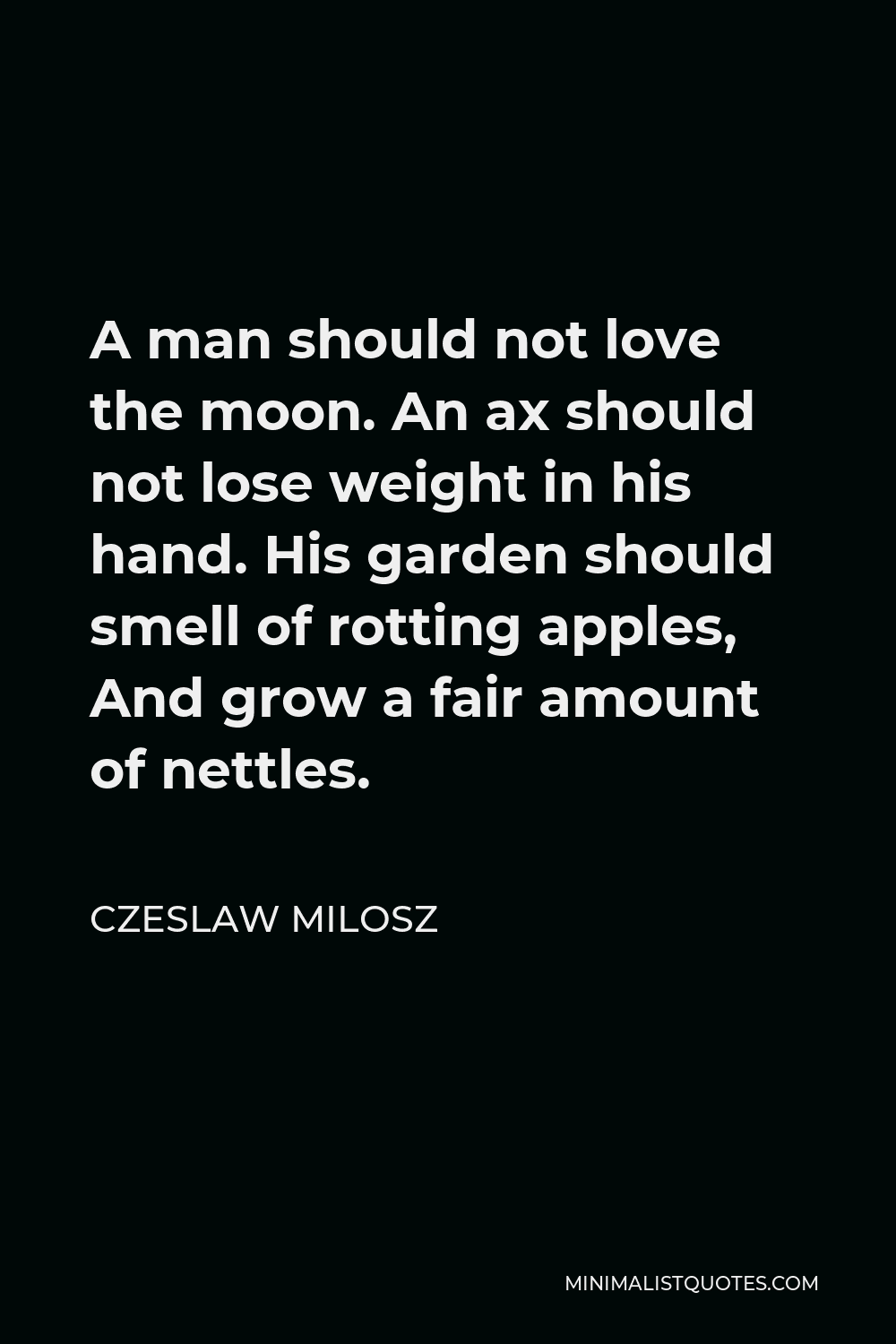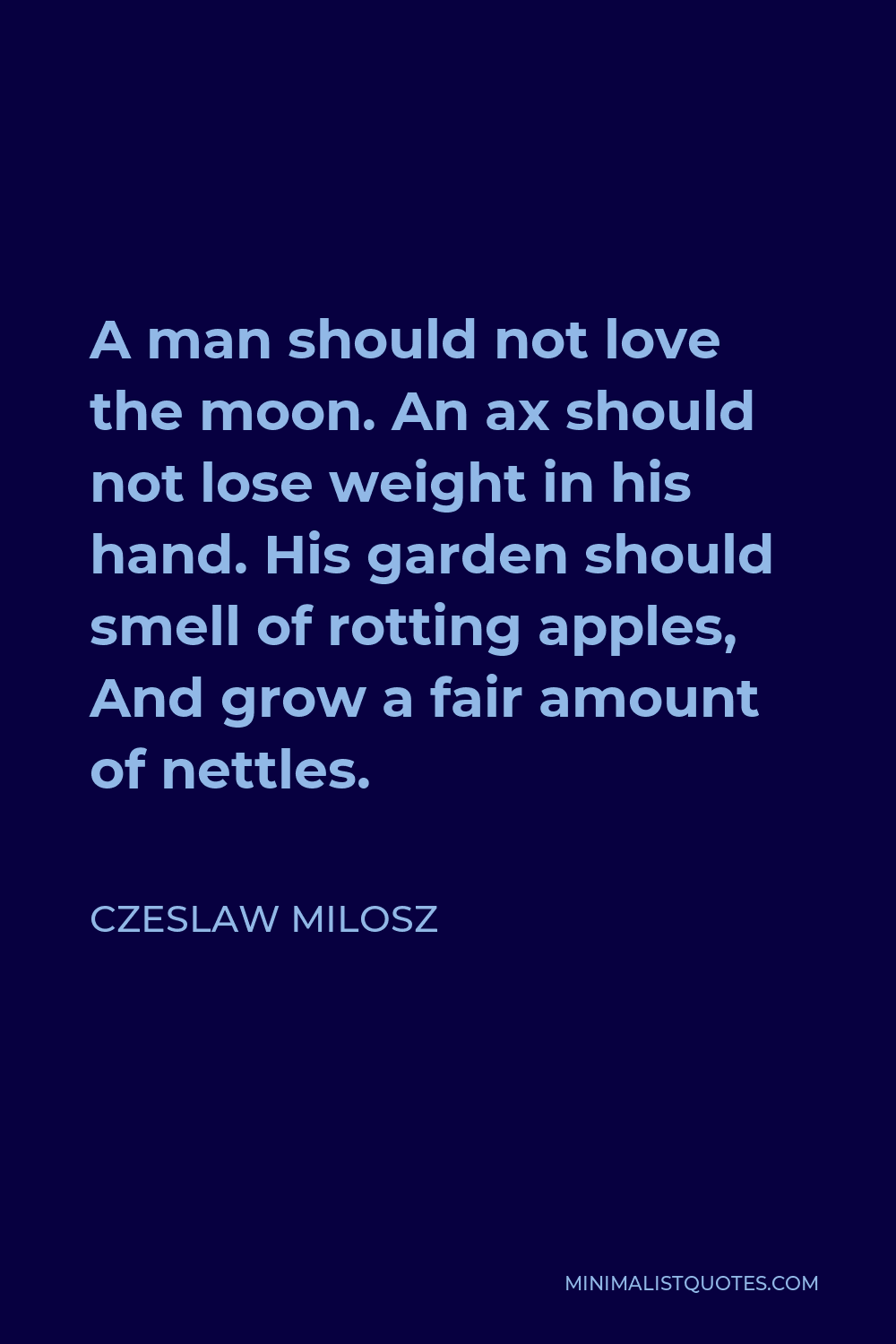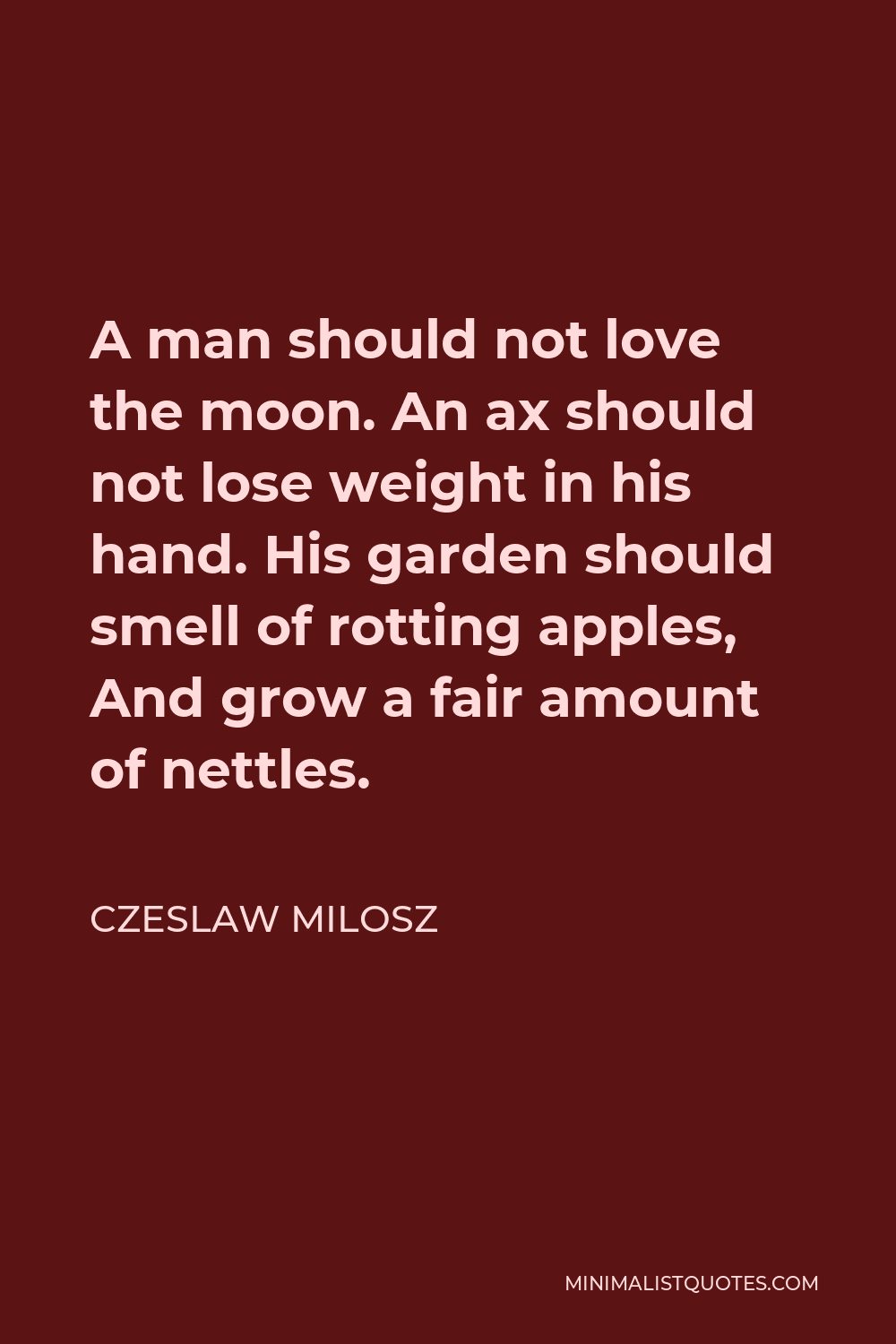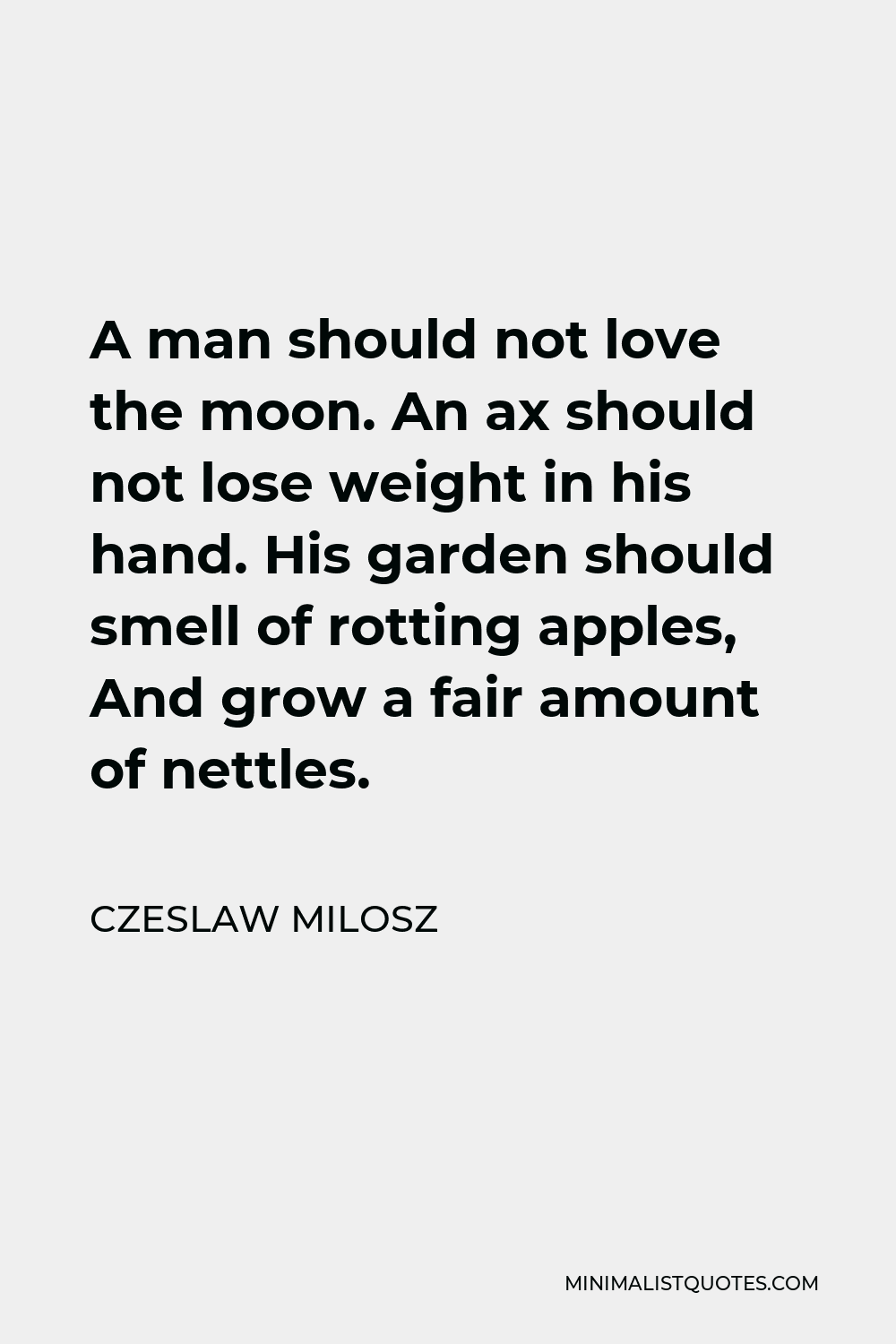From life, from the apple cut by the flaming knife, what grain will be saved? My son, believe me, nothing remains, Only adult toil, the furrow of fate in the palm. Only toil, Nothing more.
CZESLAW MILOSZA man should not love the moon. An ax should not lose weight in his hand. His garden should smell of rotting apples, And grow a fair amount of nettles.
More Czeslaw Milosz Quotes
-





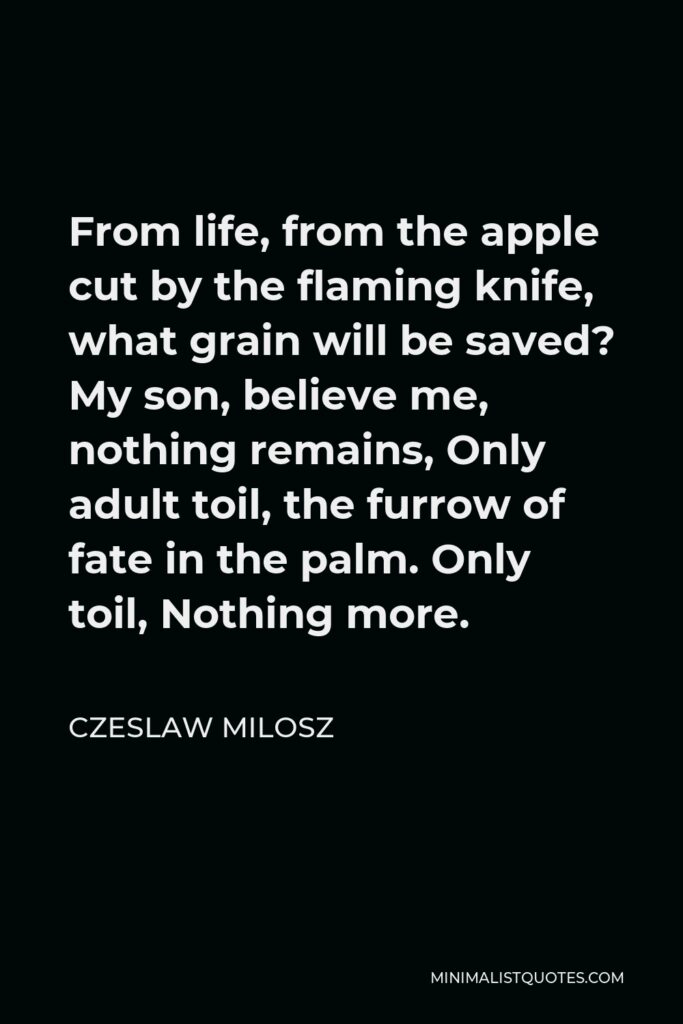

-





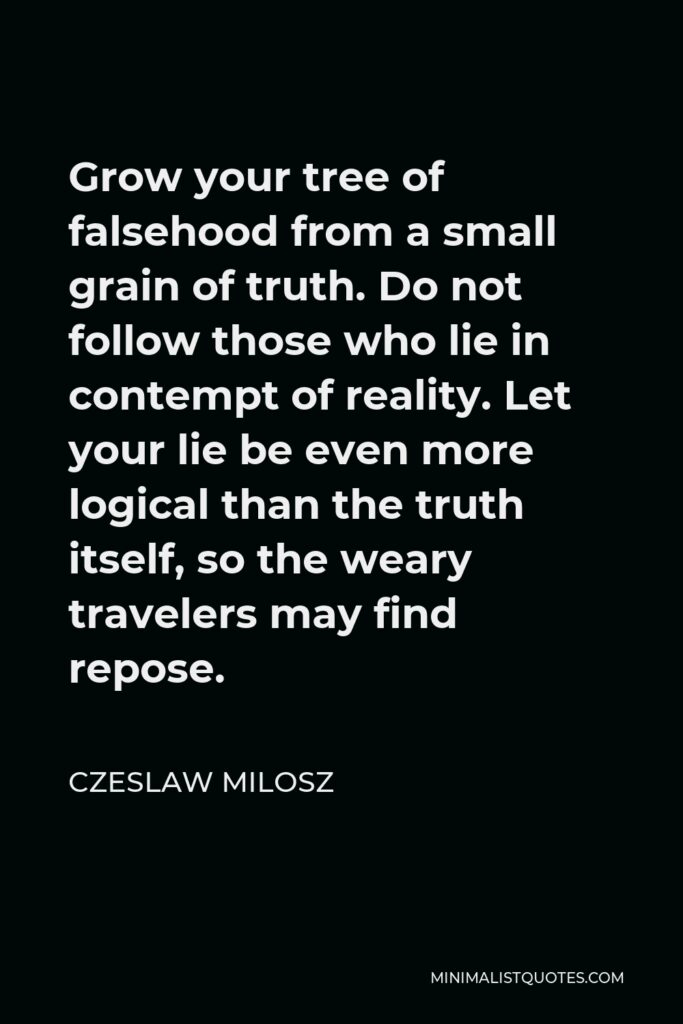

Grow your tree of falsehood from a small grain of truth. Do not follow those who lie in contempt of reality. Let your lie be even more logical than the truth itself, so the weary travelers may find repose.
CZESLAW MILOSZ -





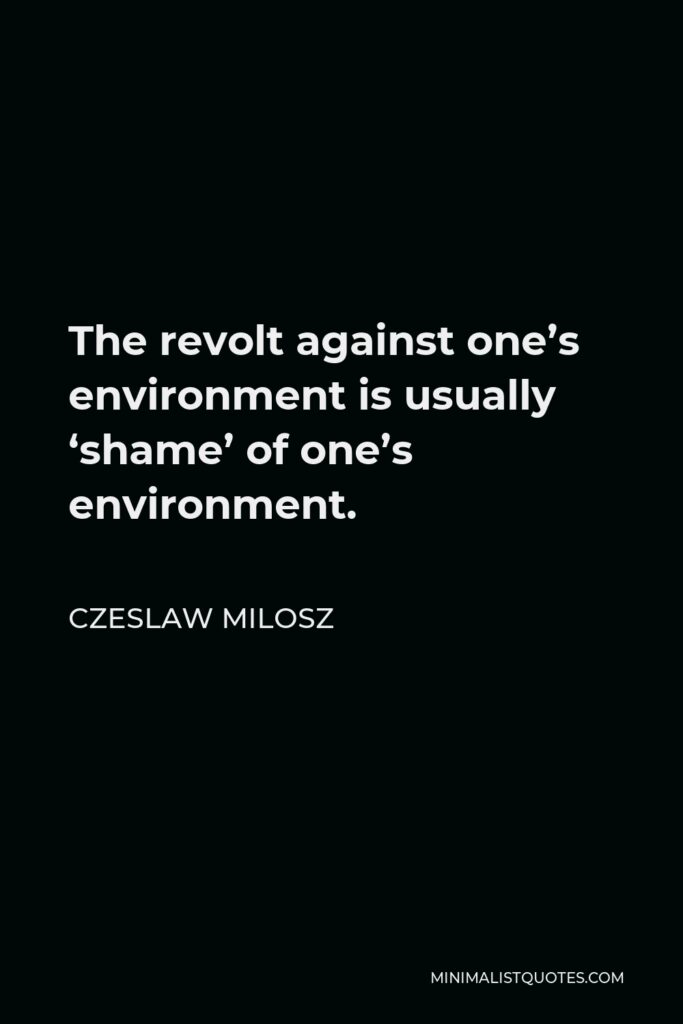

The revolt against one’s environment is usually ‘shame’ of one’s environment.
CZESLAW MILOSZ -





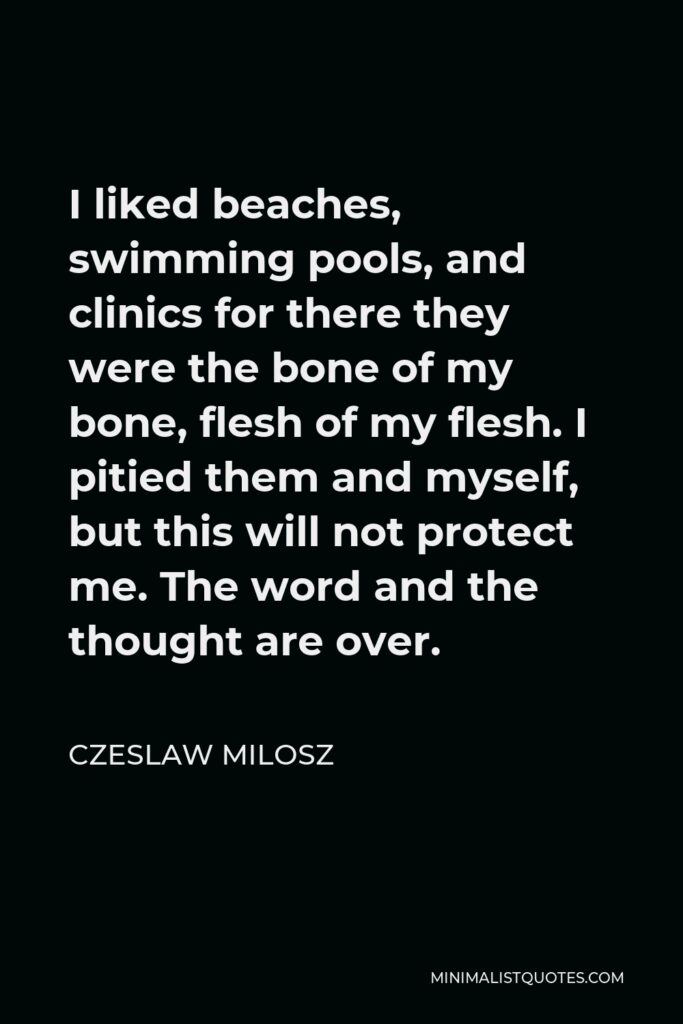

I liked beaches, swimming pools, and clinics for there they were the bone of my bone, flesh of my flesh. I pitied them and myself, but this will not protect me. The word and the thought are over.
CZESLAW MILOSZ -





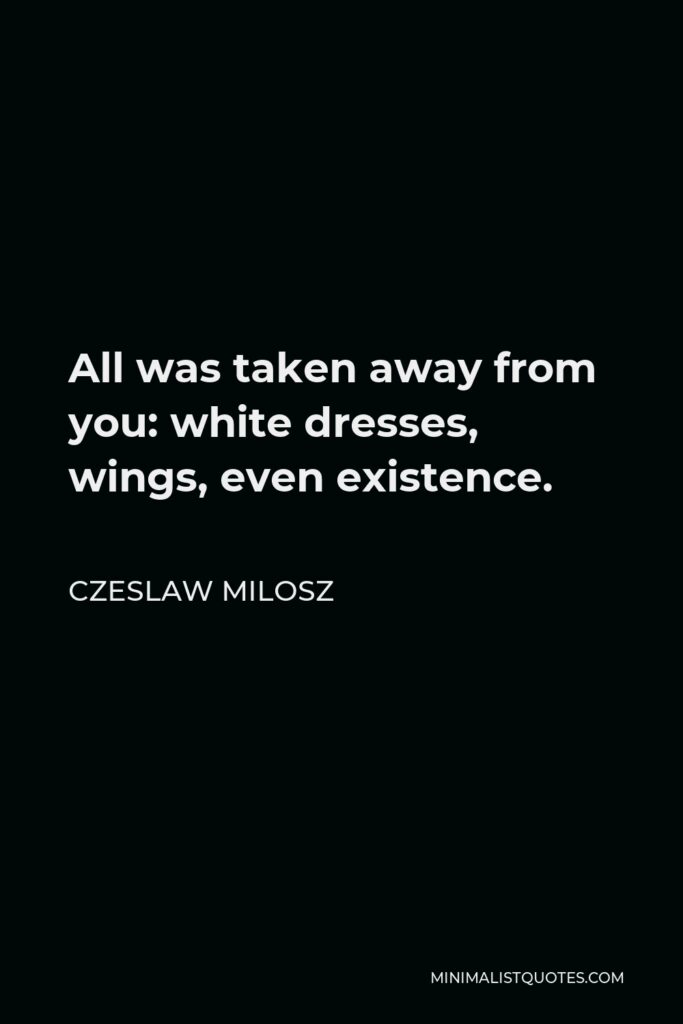

All was taken away from you: white dresses, wings, even existence.
CZESLAW MILOSZ -





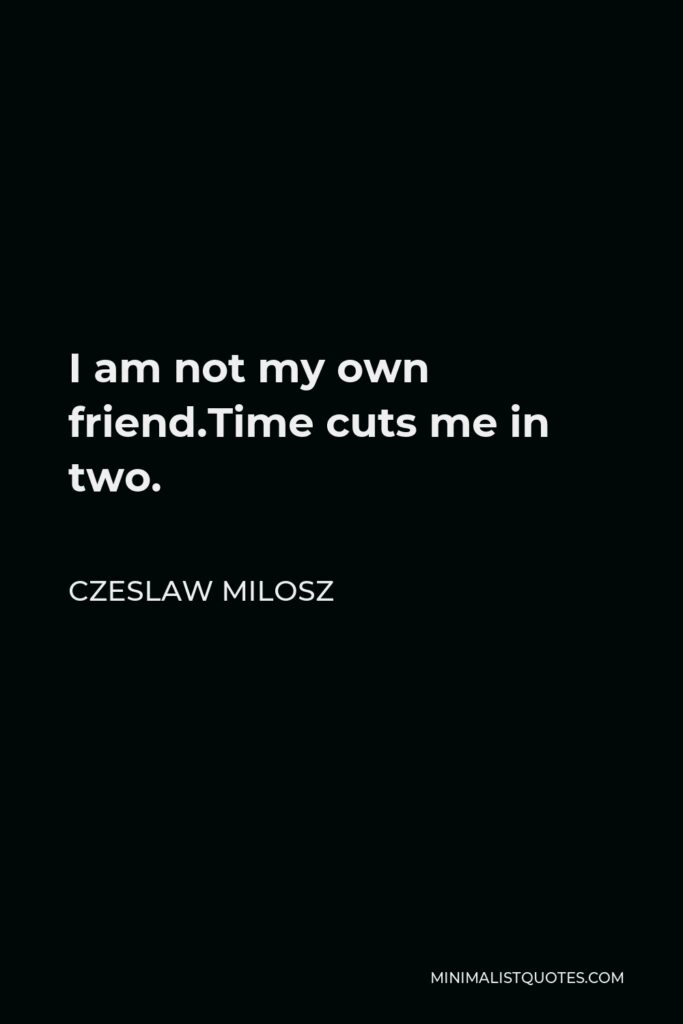

I am not my own friend.Time cuts me in two.
CZESLAW MILOSZ -





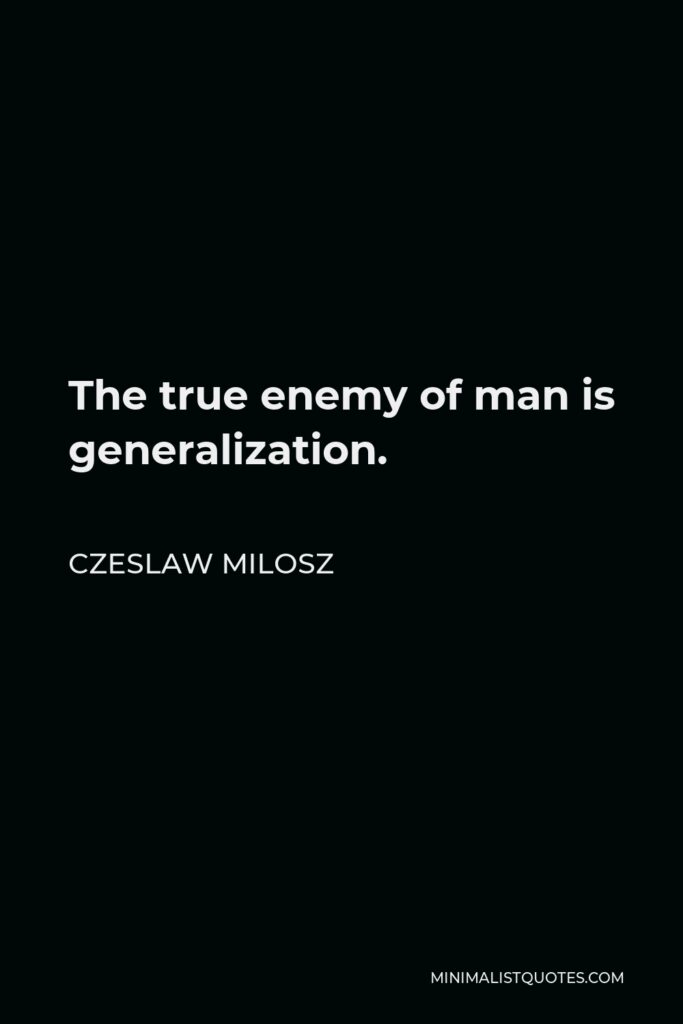

The true enemy of man is generalization.
CZESLAW MILOSZ -





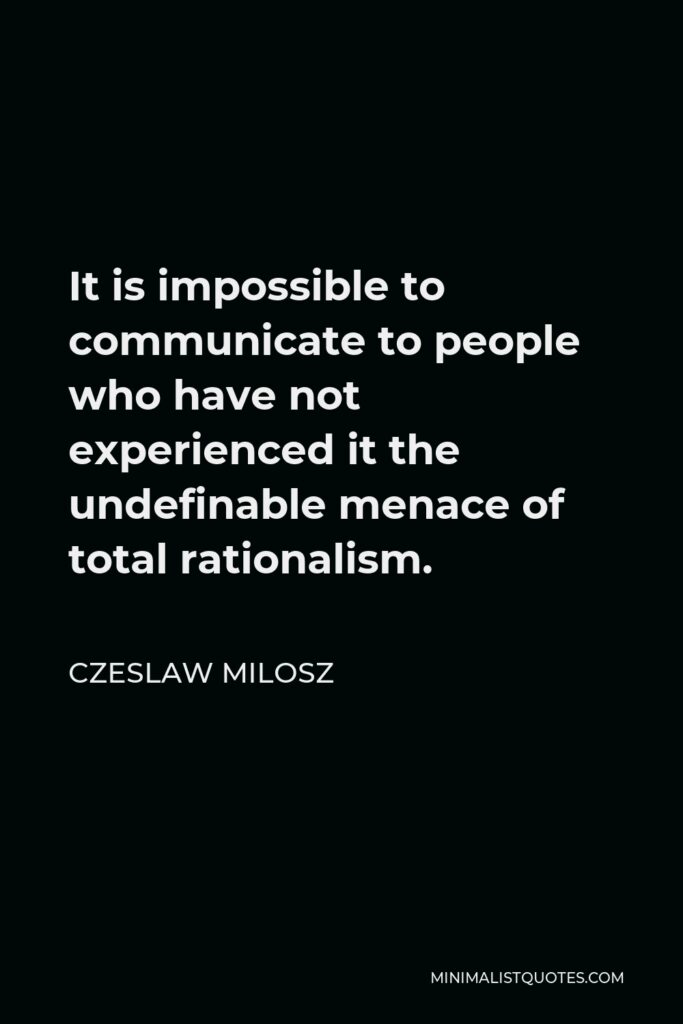

It is impossible to communicate to people who have not experienced it the undefinable menace of total rationalism.
CZESLAW MILOSZ -





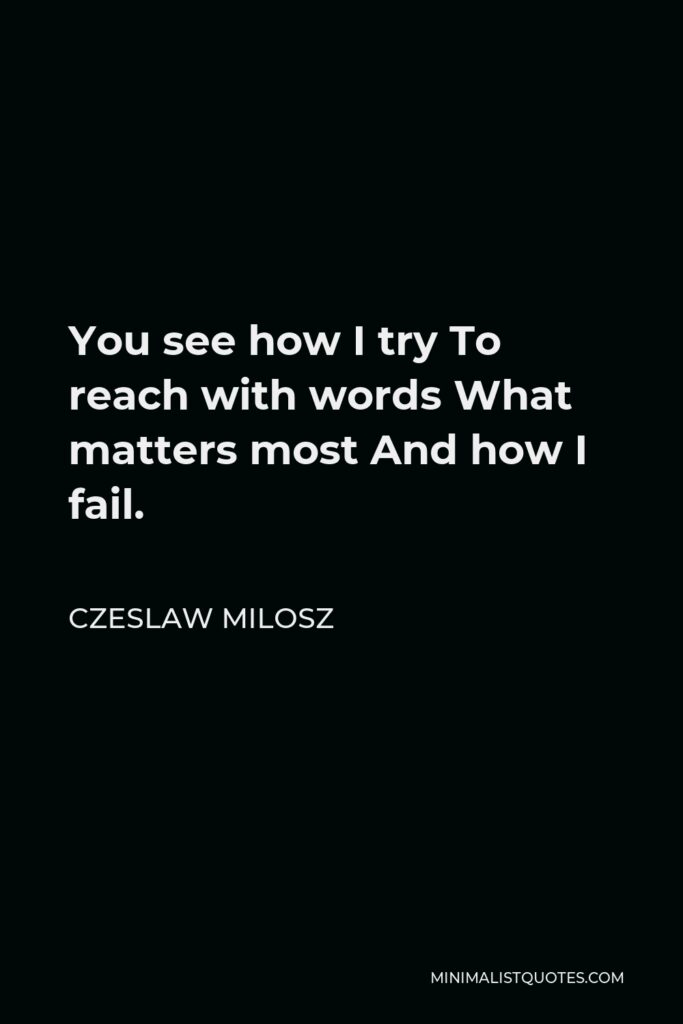

You see how I try To reach with words What matters most And how I fail.
CZESLAW MILOSZ -





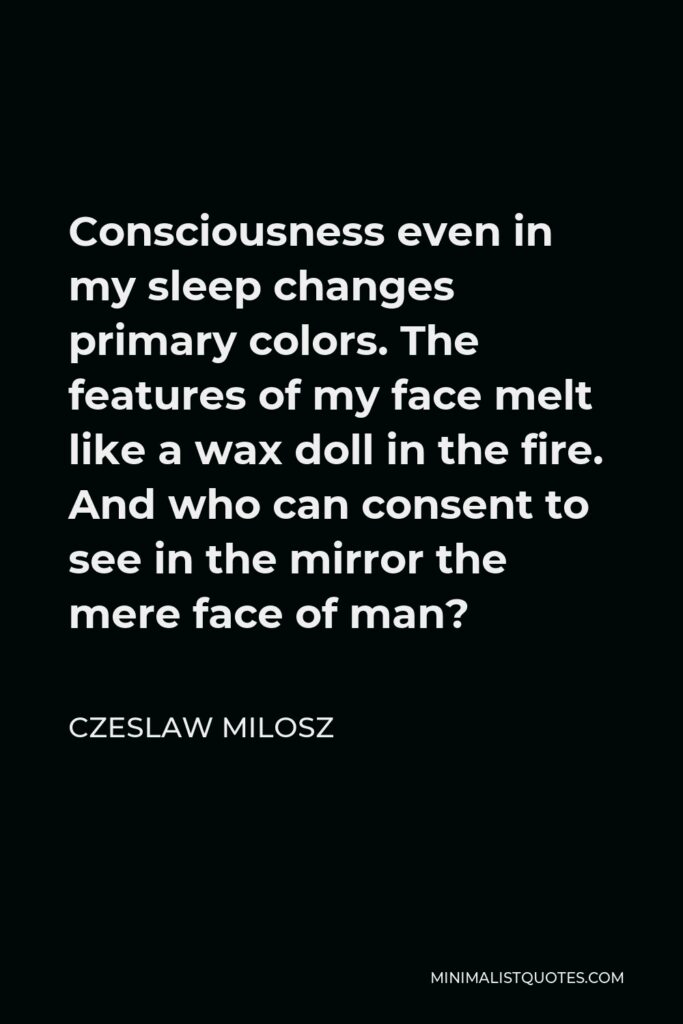

Consciousness even in my sleep changes primary colors. The features of my face melt like a wax doll in the fire. And who can consent to see in the mirror the mere face of man?
CZESLAW MILOSZ -





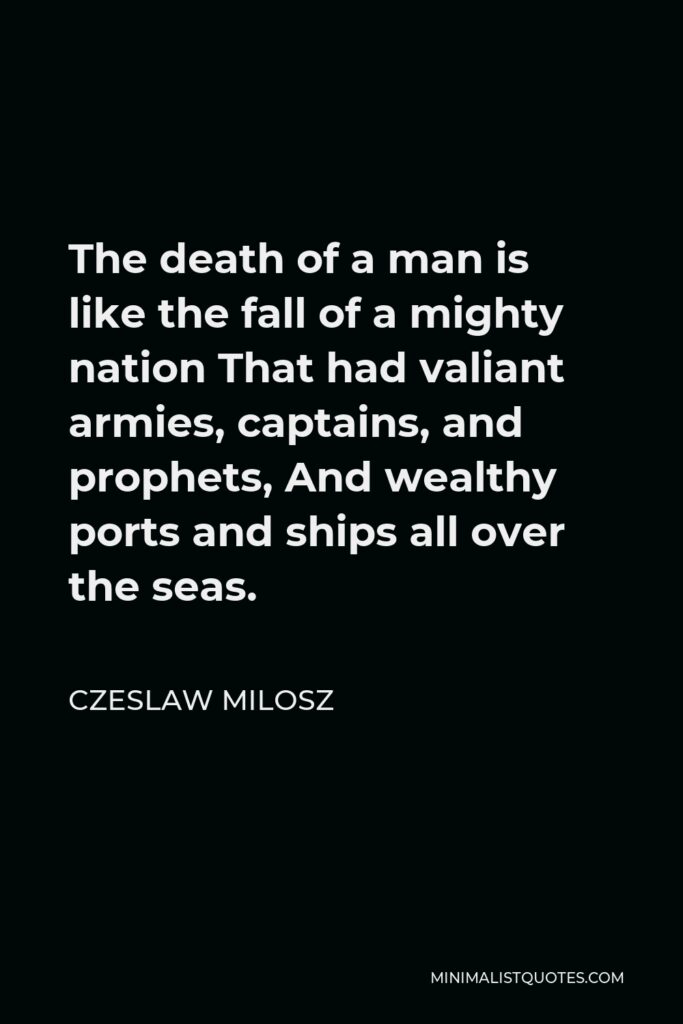

The death of a man is like the fall of a mighty nation That had valiant armies, captains, and prophets, And wealthy ports and ships all over the seas.
CZESLAW MILOSZ -





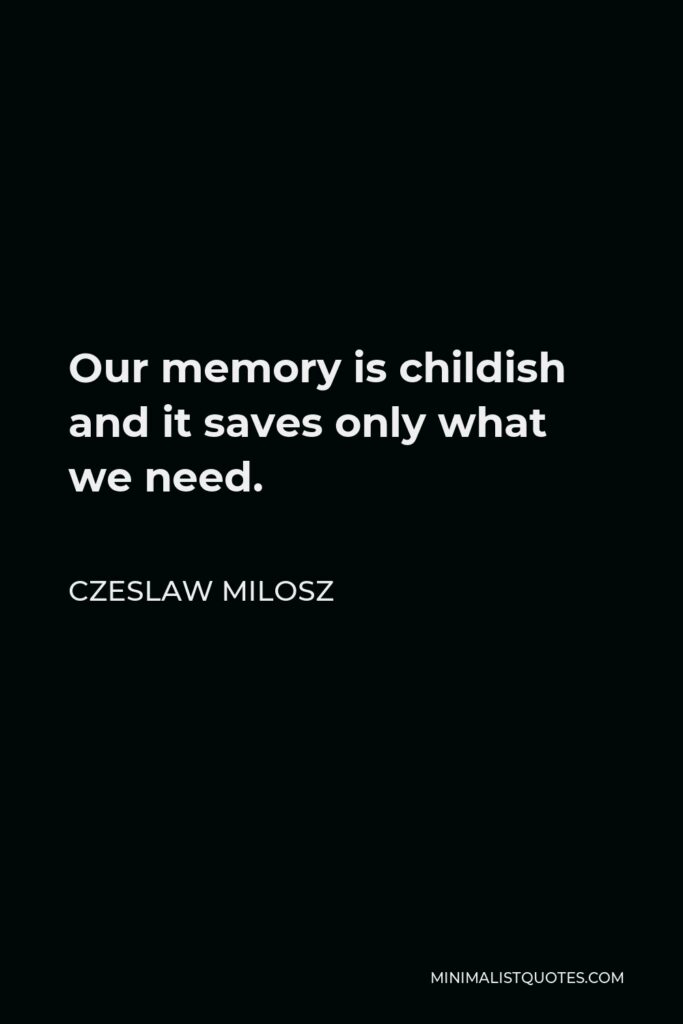

Our memory is childish and it saves only what we need.
CZESLAW MILOSZ -





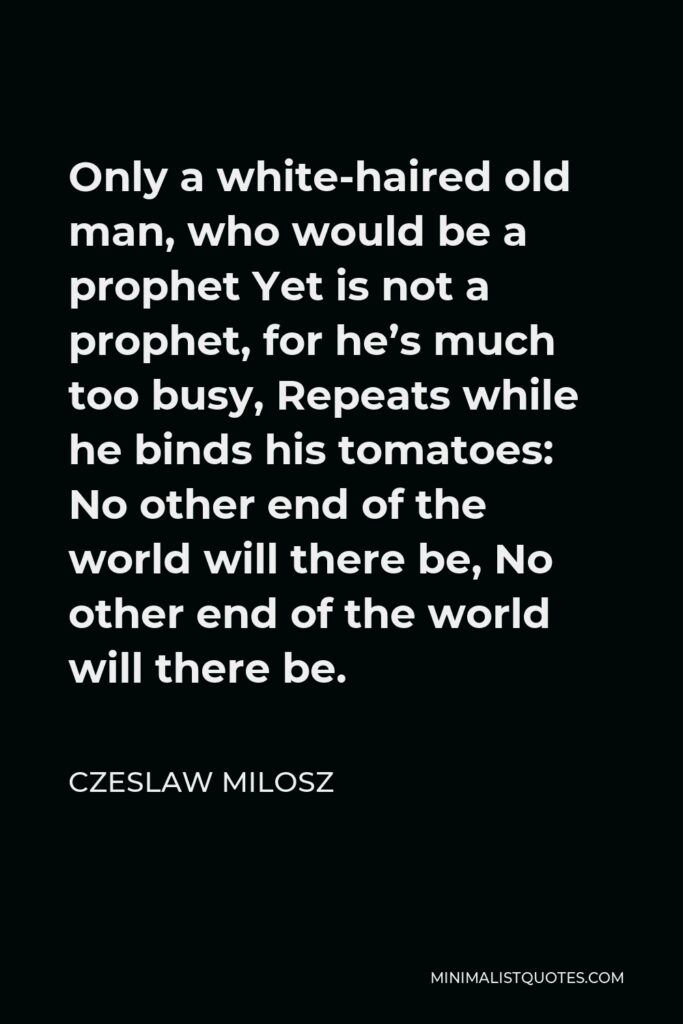

Only a white-haired old man, who would be a prophet Yet is not a prophet, for he’s much too busy, Repeats while he binds his tomatoes: No other end of the world will there be, No other end of the world will there be.
CZESLAW MILOSZ -





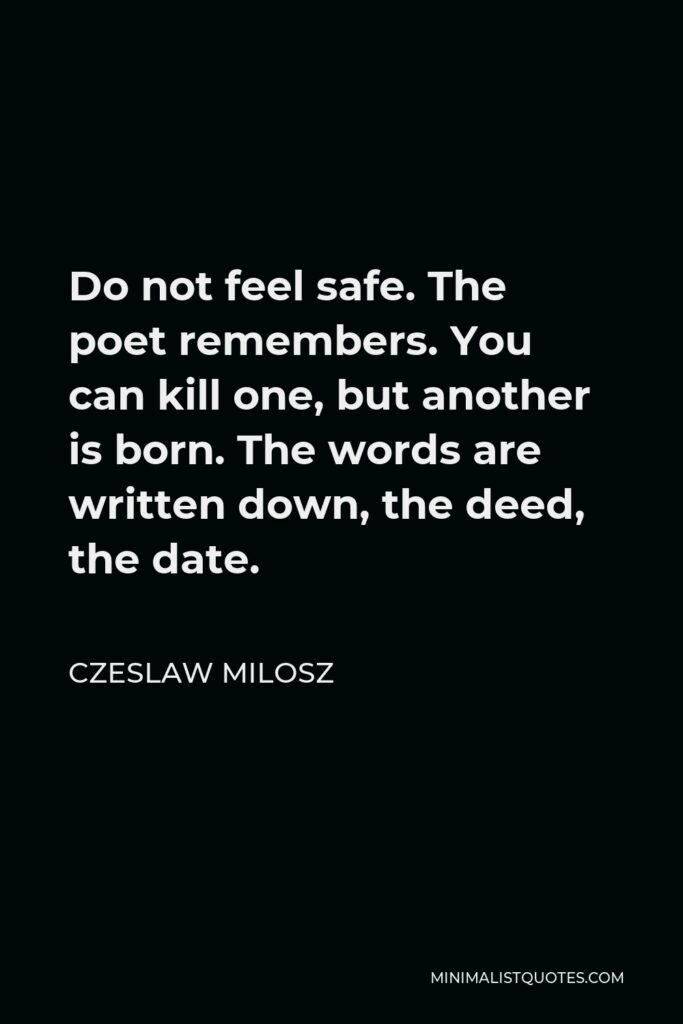

Do not feel safe. The poet remembers. You can kill one, but another is born. The words are written down, the deed, the date.
CZESLAW MILOSZ -





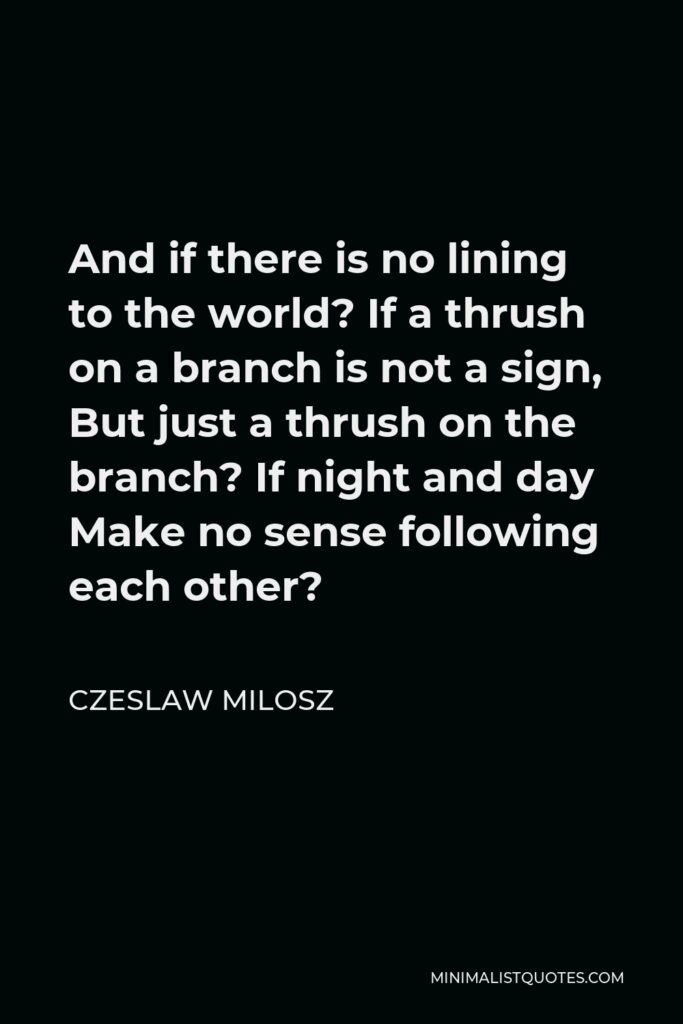

And if there is no lining to the world? If a thrush on a branch is not a sign, But just a thrush on the branch? If night and day Make no sense following each other?
CZESLAW MILOSZ -





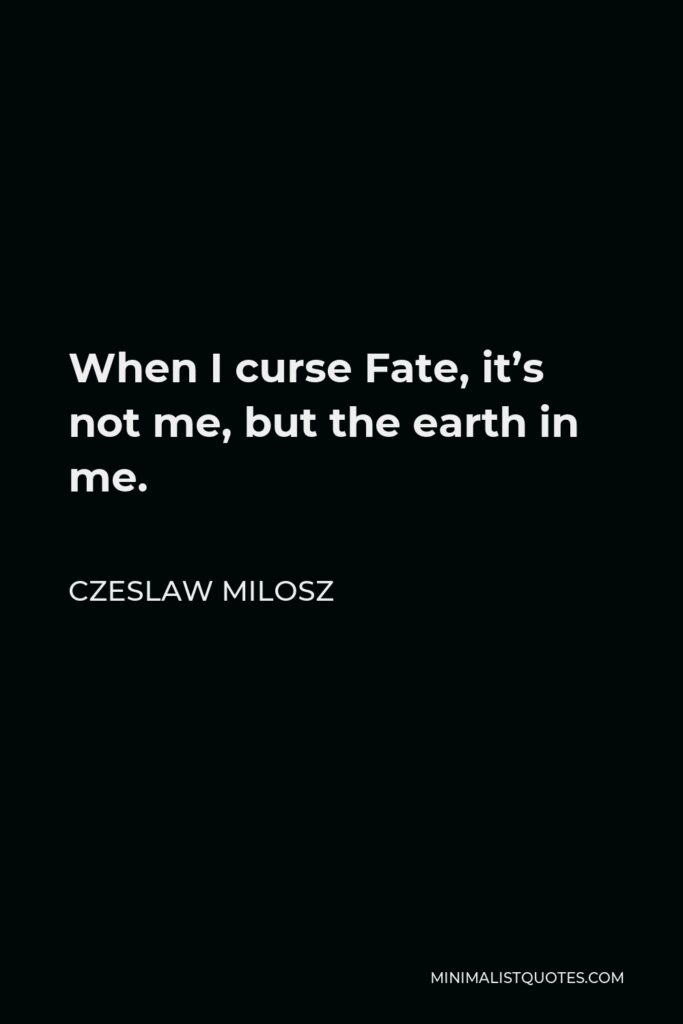

When I curse Fate, it’s not me, but the earth in me.
CZESLAW MILOSZ
